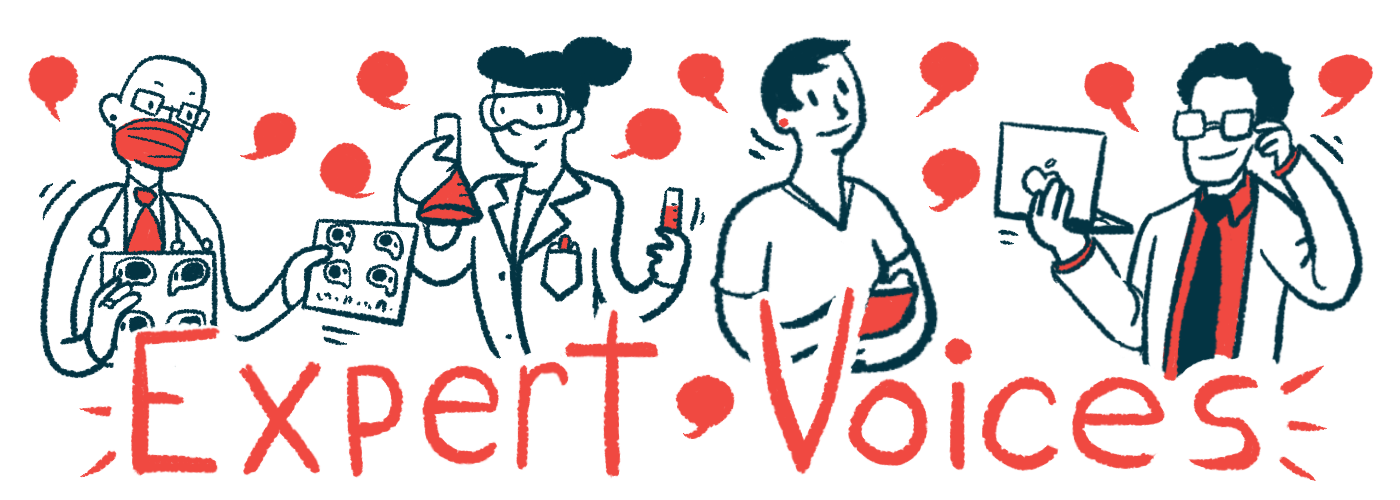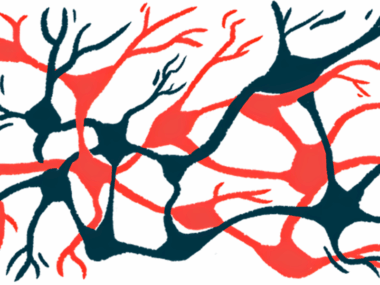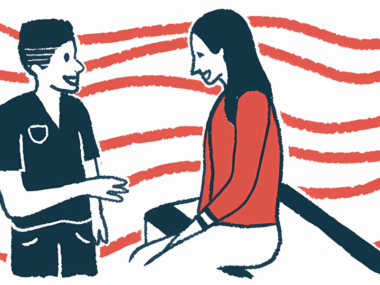Expert Voices: Can Cannabis Use Help With Parkinson’s Symptoms?
Dosage of cannabis important for patients with gait, balance, or dizziness issues
Written by |

In this installment of our “Expert Voices” series, Parkinson’s News Today asked Dr. Michelle Sexton to answer some of your questions about cannabis.
Sexton is a naturopathic doctor who completed pre- and postdoctoral fellowships at the University of Washington, where she studied the endocannabinoid system and its roles in neuroinflammation and neurodegeneration. Her predoctoral and postdoctoral research on the topic of cannabinoids and their roles in neuroinflammation and neurodegeneration, funded by the National Institutes of Health, investigated cannabis use and its impact on inflammatory markers. She has continued research into the health effects of cannabis at the University of California San Diego (UCSD) as an assistant adjunct professor in the department of anesthesiology. She is a medical staff professional with the Center for Integrative Medicine at UCSD, at the first cannabis clinic in a major medical center.
Sexton’s clinical practice, research, and teaching focus is the endocannabinoid system and its roles in integrative medicine to treat a range of conditions across the lifespan. Sexton has presented her research internationally and published many papers in peer-reviewed journals. She started her career in healthcare as an herbalist and midwife. She opened the first cannabis analysis laboratory in Washington state and has served as an editor on the American Herbal Pharmacopoeia botanic monographs. She is a member of the International Cannabinoid Research Society, the International Association of Cannabinoid Medicines, the California Naturopathic Doctors Association, and the American Association of Naturopathic Doctors. She maintains a private medical practice in San Diego.

Dr. Sexton works at the UCSD’s Center for Integrative Medicine, the first cannabis clinic in a major medical center. (Photo courtesy of Dr. Michelle Sexton)
What misconceptions surrounding cannabis use for Parkinson’s would you like to dispel?
Cannabis is not known to be a cure for any disease, including any neurological disease. It is not a solution for all that ails people with Parkinson’s disease (PPD). Like any potential therapy, there will be some people who respond well and see symptom relief and some who don’t. If you decide to try cannabis, you will have to weigh any positive benefits compared to negative side effects and determine for your own situation whether using cannabis may be helpful for you and your unique symptom profile and/or contribute to your quality of life. The side effects can include effects on cognitive function, space and time perception, dizziness, nausea, and others.
Any advice for people with Parkinson’s considering medical cannabis use?
In a perfect world, you would be able to discuss using medical cannabis with your doctor. However, due to the unusual situation of cannabis being understudied while widely used as a medicine, medical professionals may not feel prepared to provide advice on such use.
It is important to be open with your doctor should you decide to use cannabis, however, so that they can be helpful for helping to monitor any negative side effects or potential for drug-drug interactions. There is a plethora of “experts” who are giving advice on using cannabis. Some are healthcare professionals and some are not. Be wary of whom you get advice from. The best advice on how to employ and dose cannabis will come from someone who has a lot of experience working with PPD, as well as a strong background in cannabis science.
Be wary of what you read on the internet as it can be difficult to separate fact from marketing claims about what can be expected from cannabis use. The research on cannabis in PPD is very scant.
Any words of caution?
Cannabis, particularly inhaled cannabis, can affect the cerebellum, the part of the brain that helps us to maintain balance, help us to make accurate movements. The cerebellum is rich with the CB1 receptor, the protein that THC in cannabis binds to. So for people with PD who have balance issues, dizziness, or gait disturbance, caution is warranted.
Further, CB1 receptors are also found on smooth muscle tissue and endothelial cells, and when THC acts on the receptor in this location, it leads to dilation of blood vessels. When this occurs, it causes a hypotensive effect, or drop in blood pressure. Because PPD may already have postural or orthostatic hypotension, this also warrants caution. Particularly if you are a fall risk, initiating cannabis use may indicate that you should always be using a walking aid. Staying well-hydrated, using electrolytes, and rising slowly are means by which to mitigate these effects. Rather than inhaling cannabis, oral administration may have less pronounced effects on dizziness, balance, and hypotension, but dose matters!
In what ways might medical cannabis be especially suited for people with Parkinson’s?
The most striking observation from clinical practice is beneficial effects on sleep. Other ways include reducing anxiety, reducing tremor, and improving quality of life (forgetting about illness).
Do you find that patients’ symptoms respond most positively to a THC-heavy or a CBD-heavy strain?
It’s not really possible to answer this question because the effects are very individual. In general, for therapeutic purposes (medical use), low doses of THC are more likely to be beneficial. A plant type (chemotype or cultivar; strain is a word used in microbiology) that is high in CBD will have much lower THC content and so could be more well-suited for medical use. The chemotypes are more important when using inhaled cannabis than when using oral cannabis. This is due to the essential oil part of the plant, which may guide the effects when inhaled. Because the essential oil component will be metabolized by the liver when taking cannabis orally, the biologic effects of these compounds will be barely perceptible, if at all.
What types of positive effects in medical cannabis use have you observed?
As already discussed, the most striking effect is on sleep, and in general, cannabis could be considered a quality-of-life drug. The mild mood-enhancing, anxiety-lifting, sleep-promoting, calming, relaxing, and euphoric effects can be achieved with a low dose of THC, decreasing the chances for impairment, either cognitively or physically.
Do you recommend a particular route of delivery for cannabis?
Inhalation is for those who need rapid effects, while taking a cannabis product orally will have much longer-lasting effects. Administration and dose are highly variable and dependent on many things, including considering drug interactions and existing balance issues, hypotension, dizziness, and cognitive function. The best advice will come from a medical provider who is skilled in the use of medical cannabis. Beware of information coming from dispensary personnel as they may be biased or not well informed about cannabis for medical use.
Is there ongoing or recent cannabis research that excites you?
It is exciting to see all of the cannabis research that is currently being conducted, as in the past the funding was only available to study harms of cannabis. It looks like the time has come for greater understanding and evidence for the applicability of cannabis, along with other botanical medicines, for treating what are generally difficult-to-treat chronic diseases and to provide potential improvements in quality of life!
Expert Voices is a monthly series involving a Q&A with an expert in the Parkinson’s space about a specific topic. These topics and questions are curated from a survey in which we ask readers what they want to learn more about from experts. If you’d like to submit topics or questions for consideration in a future installment of the series, click here to take the survey.
Parkinson’s News Today is strictly a news and information website about the disease. It does not provide medical advice, diagnosis, or treatment. This content is not intended to be a substitute for professional medical advice, diagnosis, or treatment. Always seek the advice of your physician or other qualified health provider with any questions you may have regarding a medical condition. Never disregard professional medical advice or delay in seeking it because of something you have read on this website.





